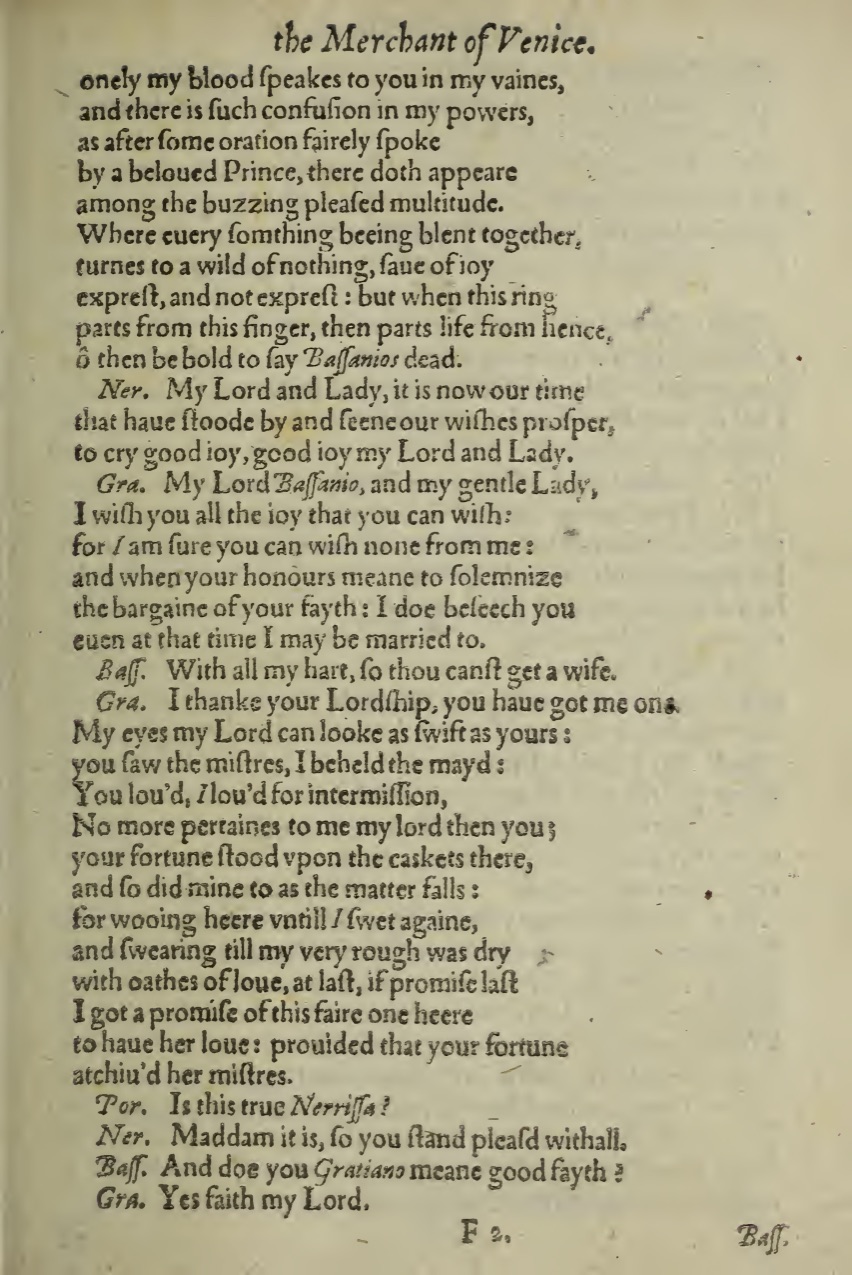Only my blood speaks to you in my veins,
and there is such confusion in my powers
as after some oration fairly spoke
by a beloved Prince, there doth appear
among the buzzing pleased multitude.
Where every something being blent together,
turns to a wild of nothing, save of joy
expressed, and not expressed: but when this ring
parts from this finger, then parts life from hence,
o then be bold to say Bassanio’s dead .
Nerrissa. My Lord and Lady, it is now our time
that have stood by and seen our wishes prosper,
to cry good joy, good joy my Lord and Lady.
Gratiano. My Lord Bassanio, and my gentle Lady,
I wish you all the joy that you can wish:
for I am sure you can wish none from me:
and when your honors mean to solemnize
the bargain of your faith: I do beseech you
even at that time I may be married to.
Bassanio. With all my heart, so thou canst get a wife.
Gratiano. I thank your Lordship, you have got me one.
My eyes my Lord can look as swift as yours:
you saw the mistress, I beheld the maid:
You loved, I loved for intermission,
No more pertains to me my lord than you;
your fortune stood upon the caskets there,
and so did mine too as the matter falls:
for wooing here until I sweat again,
and swearing till my very roof was dry
with oaths of love, at last, if promise last
I got a promise of this fair one here
to have her love: provided that your fortune
achieved her mistress.
Portia. Is this true Nerrissa?
Nerrissa. Madam it is, so you stand pleased withall.
Bassanio. And do you, Gratiano, mean good faith?
Gratiano. Yes, faith my Lord.
